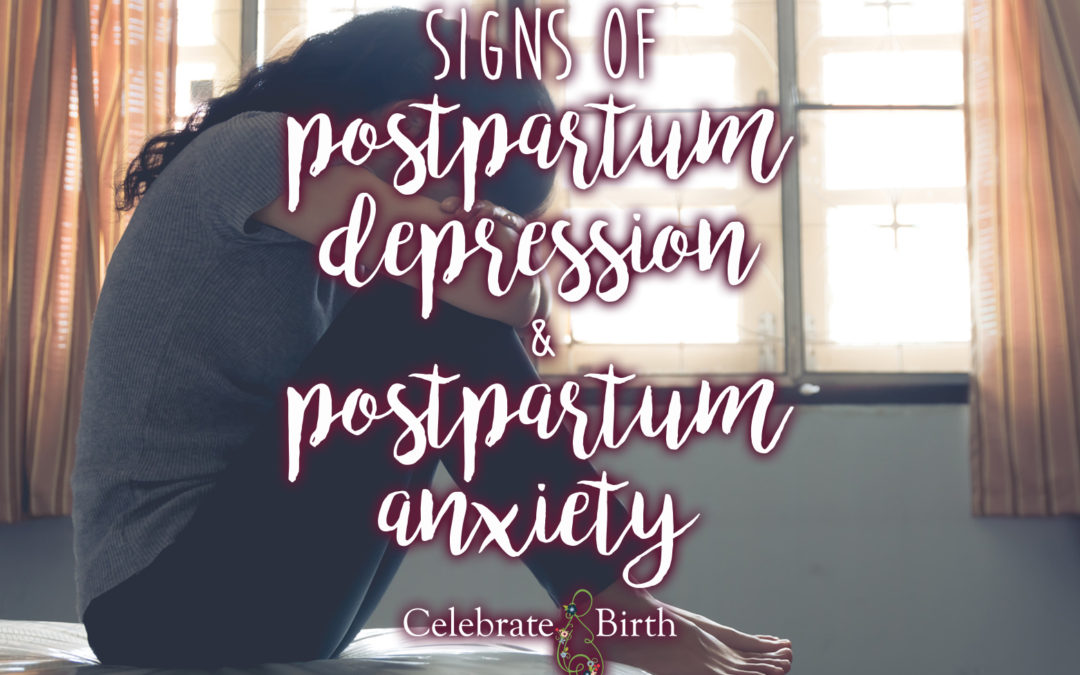One of the great things about the internet is that it has given a platform for women to share their journey through Postpartum Depression and Anxiety. However, with this great new resource comes a lot of misinformation. What exactly are the symptoms of and at what point is it necessary to seek help?
Did you know that postpartum mental health disorders are the most common complication of pregnancy and childbirth – more common than preterm labor, low birth weight, preeclampsia, high blood pressure, or gestational diabetes? Anyone can develop Postpartum Depression or Anxiety, though women are more likely to develop these conditions if they have a personal or family history of similar mental health disorders. Postpartum Depression and Anxiety go beyond the normal emotional challenges that most new moms experience due to the fluctuation of hormones following childbirth. These conditions make it difficult for the mother to function emotionally and physically and can ultimately become debilitating, making them unable to take care of themselves or their child. Screening tools for these disorders can be found online, but it is best for them to be reviewed in the presence of a trusted care provider. A diagnosis is usually made if a woman has been experiencing some of the symptoms below for two weeks or more.
Symptoms of Postpartum Depression include:
- Overwhelming tiredness
- Feeling sad, hopeless, helpless, or worthless
- Difficulty sleeping (insomnia) or sleeping all day
- Eating too much or too little, which can lead to weight gain or weight loss
- Difficulty concentrating on a task or feeling foggy
- Crying for “no reason”
- Trouble connecting, bonding, or feeling close with the baby
- Worry about being a bad mother
- Fear or thoughts of harming the baby or oneself
- Losing interest in things that once gave pleasure
Symptoms of Postpartum Anxiety include:
- Uncontrollable fear and worry that monopolize thoughts
- Feeling irritable, restless, or tense
- Panic attacks
- Obsessive thoughts about not parenting correctly
- Worrying that something bad will happen to the baby or avoiding places, activities, etc for fear that something bad may happen
- Insomnia
It can be hard to monitor yourself for warning signs, especially during the postpartum period, so it is important to discuss these symptoms prior to the birth with someone who will be in close contact with you in the weeks and months that follow. Review the list with your partner and/or another close friend or family member, and encourage them to talk with you if they have any concerns about your wellbeing. Stay in touch with your obstetrician or midwife who is trained to look for these symptoms, and be honest about your feelings when you are at your postpartum appointments. Most importantly, contact your care provider if:
- The above symptoms last more than two weeks
- You can’t take care of daily life, yourself, or your child
- You are having thoughts of harming yourself or someone else
Gone is the stigma that used to come with a diagnosis of Postpartum Depression or Anxiety. More and more mothers are coming forward to talk about their struggles with these symptoms, not only to normalize the diagnosis itself but also to offer encouragement for those women who are similarly struggling. If you do find yourself experiencing one of these disorders, take heart in knowing that there exists a plethora of resources and treatments proven to help. You are not alone in this experience. There is help available. Most maternal care providers are vigilantly watchful for the onset of these symptoms in their clients and have a referral list of mental healthcare providers to send mothers to if they need assistance. For local resources in addition to what you may have received from your care provider can help – contact them directly at 863-578-8633.

